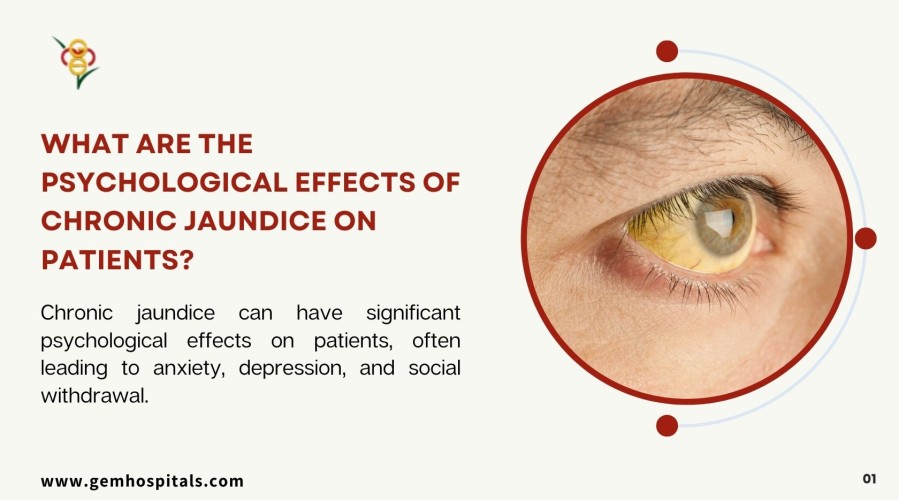Learn effective solutions for digestive problems with expert tips to improve gut health, reduce discomfort, and maintain a healthy digestive system.
What are the psychological effects of chronic jaundice on patients?

Jaundice is a condition that influences the liver mainly, usually, the condition is characterized by yellowing of skin and eyes this is because of the increased amount of bilirubin in the blood. The bilirubin is the byproduct of red blood cell breakdown when the liver is performing well it will be excreted out of the body. There are several physical symptoms regarding the condition but the unknown thing is they also hold some psychological effects that often remain underexplored. Read out the below content to get to know the psychological effects of chronic jaundice in individuals,
Psychological effects of chronic jaundice
- Jaundice while hearing it there is seems to be a common condition but the fact is it is going to have a significant effect on the patient’s emotional state. The yellowing of the skin, often associated with serious liver conditions such as hepatitis or cirrhosis, can make patients self-conscious. Those with jaundice may experience feelings of embarrassment or shame. Constantly being reminded of their condition through their reflection or comments from others can contribute to low self-esteem, leading to sadness or even depression.
- The condition is frequently linked to liver diseases, many of which can have severe outcomes if left untreated. Even though the jaundice is non-threatening with proper treatment with information from the surroundings or due to overthinking, the patient may create a lingering fear of more severe complications. Most people continuously worry about their liver function, bile duct health, or the possibility of developing liver cancer. The fear of the unknown plays a significant role in this anxiety.
- One of the most significant psychological effects of chronic jaundice is social isolation. Even some of the patients may withdraw from social interactions due to the physical appearance of jaundice or the misconceptions others might have about their illness. Friends, family members, or coworkers might unintentionally contribute to feelings of isolation by making remarks about the person’s appearance or asking probing questions about their health. This may create discomfort in an individual.
- When chronic jaundice persists over time, it can lead to feelings of hopelessness. Patients may begin to feel as though their condition is beyond control, and that improvement is unlikely. This sense of despair can develop into depression, which is common among individuals with long-term health conditions. Depression associated with chronic illness like jaundice is often linked to the patient’s reduced ability to engage in activities they once enjoyed. Physical fatigue, another symptom of liver disease, can further exacerbate this issue. As energy levels decline, patients may find it difficult to maintain their usual hobbies or social activities, leading to further emotional detachment.
- The psychological burden of chronic jaundice often affects personal relationships. Patients who are struggling with their mental health may become withdrawn or irritable, causing strain in relationships with loved ones. Partners, friends, and family members may feel confused or frustrated if they don’t understand the full extent of the emotional toll that chronic jaundice takes.
- Conversely, patients themselves may feel guilty about how their illness affects others. The financial and emotional strain of managing a chronic condition can cause tension in households, especially if the patient is unable to work or contribute as they once did. This added layer of stress can deepen feelings of inadequacy or failure.
Chronic jaundice is a condition that has to be treated properly and timely to avoid further complications to develop. Emotional distress, anxiety, depression, and social isolation are some of the psychological effects of jaundice. To enhance the quality of life it is vital to consult healthcare providers they may help you overcome this critical situation.
Blogs & Article
Explore current research trends in digestive health, including new treatments, advanced diagnostics, and innovations improving gut health and patient care.
Discover common digestive health myths and the real facts. Learn simple tips to improve gut health and maintain better digestion for a healthier life.


